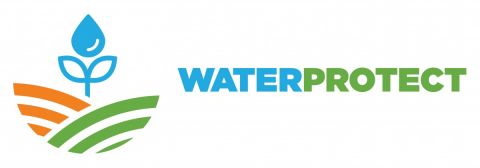WaterProtect
The surface water quality is far from ideal in quite a few European regions. The causes include the use of manure, fertiliser and crop protection products in agriculture. The European WaterProtect project is opting for a multi-actor approach, in which all the parties involved collaborate to improve the protection of the drinking water sources in the region.
In order to test various methods in the field, the project partners led by VITO are setting up what are called action labs in seven countries. In concrete terms, this involves seven regions that have to deal with pollution from nitrates, phosphates and/or pesticides. Participating regions include the Bollaertbeek (Belgium), Wexford County (Ireland) and Val Tidone (Italy). The farming methods and challenges differ for each action lab.
Collaboration
“Water pollution is a complex problem. In many places in Europe, it has been established that introducing stricter laws and regulations has not had the expected results. That is why within WaterProtect we are testing what is called a multi-actor approach, where all the parties involved in a region come together to try and find a solution: farmers, authorities, private individuals, etc.” explains Piet Seuntjens, coordinator of WaterProtect. “We are mapping out the problem areas regarding water quality using a new software app developed by VITO. This allows the partners to check where they can make a difference and which farming practices are the most effective in the different locations. In addition, WaterProtect is also considering new systems for water governance, in which we partly replace a sanctioning approach with collaboration with farmers and possibly rewarding good results. We actively support the farmers in setting up alternative funding.”
Raising awareness
In Belgium, WaterProtect is focusing on the Bollaertbeek in the Westhoek region of West Flanders. If water levels are low there, e.g. in the summer, the concentration of crop protection products rises. This impacts the nearby Watergroep water extraction site.
“Farmers sometimes do not realise how much of an impact they have on the water quality,” says Piet Seuntjens. “Minor changes can make a huge difference: keeping a buffer strip free from fertiliser or pesticides next to the waterway, alternative management techniques for land maintenance, avoiding direct leaching onto paved surfaces of the farmyard, and losses while flushing and filling the spray tanks. … The project will continue until June 2020. By that time we hope to have implemented the first concrete measures in the field and we hope to see the first indications of improving water quality.”
Partners
WaterProtect is led by VITO with support from the European Horizon 2020 programme. Parties also participating in the project in Flanders are ILVO, Inagro, VMM and the Watergroep. ILVO brings all the partners to the table, Inagro is the point of contact for the farmers, VMM and the Watergroep carry out water quality measurements and VITO develops the WaterProtect web application, which the local actors can use to detect the sources of pollution and see the impact of good behaviour. The final goal is to develop a workable instrument that can also be used in other European regions.


